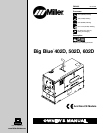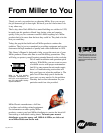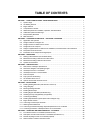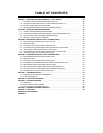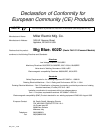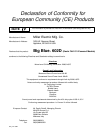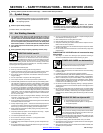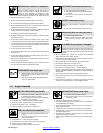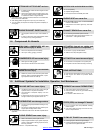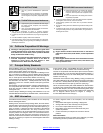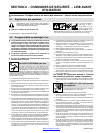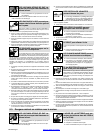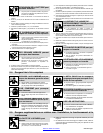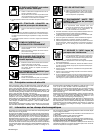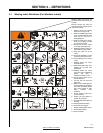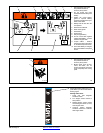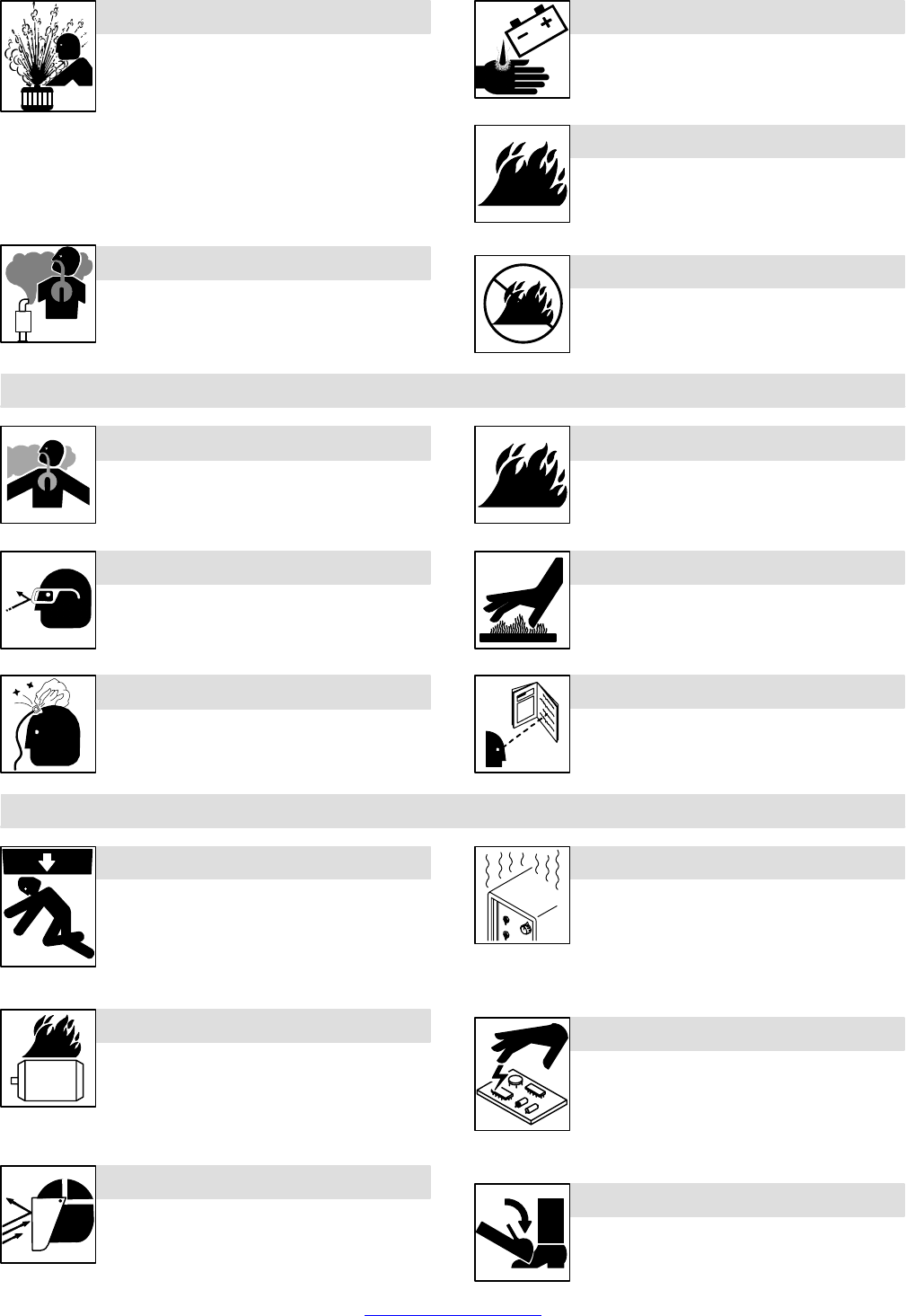
OM-495 Page 3
Return To Table Of Contents
STEAM AND HOT COOLANT can burn.
D If possible, check coolant level when engine is cold to
avoid scalding.
D Always check coolant level at overflow tank, if pres-
ent on unit, instead of radiator (unless told otherwise
in maintenance section or engine manual).
D If the engine is warm, checking is needed, and there is no overflow tank,
follow the next two statements.
D Wear safety glasses and gloves and put a rag over radiator cap.
D Turn cap slightly and let pressure escape slowly before completely re-
moving cap.
ENGINE EXHAUST GASES can kill.
D Use equipment outside in open, well-ventilated ar-
eas.
D If used in a closed area, vent engine exhaust outside
and away from any building air intakes.
BATTERY ACID can BURN SKIN and EYES.
D Do not tip battery.
D Replace damaged battery.
D Flush eyes and skin immediately with water.
ENGINE HEAT can cause fire.
D Do not locate unit on, over, or near combustible
surfaces or flammables.
D Keep exhaust and exhaust pipes way from flam-
mables.
EXHAUST SPARKS can cause fire.
D Do not let engine exhaust sparks cause fire.
D Use approved engine exhaust spark arrestor in re-
quired areas — see applicable codes.
1-4. Compressed Air Hazards
BREATHING COMPRESSED AIR can
cause serious injury or death.
D Do not use compressed air for breathing.
D Use only for cutting, gouging, and tools.
COMPRESSED AIR can cause injury.
D Wear approved safety goggles.
D Do not direct air stream toward self or others.
TRAPPED AIR PRESSURE AND WHIPPING
HOSES can cause injury.
D Release air pressure from tools and system before
servicing, adding or changing attachments, or open-
ing compressor oil drain or oil fill cap.
HOT METAL from air arc cutting and
gouging can cause fire or explosion.
D Do not cut or gouge near flammables.
D Watch for fire; keep extinguisher nearby.
HOT PARTS can cause burns and injury.
D Do not touch hot compressor or air system parts.
D Let system cool down before touching or servicing.
READ INSTRUCTIONS.
D Read Owner’s Manual before using or servicing unit.
D Stop engine and release air pressure before
servicing.
1-5. Additional Symbols For Installation, Operation, And Maintenance
FALLING UNIT can cause injury.
D Use lifting eye to lift unit only, NOT running gear, gas
cylinders, trailer, or any other accessories.
D Use equipment of adequate capacity to lift and
support unit.
D If using lift forks to move unit, be sure forks are long
enough to extend beyond opposite side of unit.
OVERHEATING can damage motors.
D Turn off or unplug equipment before starting or stop-
ping engine.
D Do not let low voltage and frequency caused by low
engine speed damage electric motors.
D Do not connect 50 or 60 Hertz motors to the 100 Hertz receptacle where
applicable.
FLYING SPARKS can cause injury.
D Wear a face shield to protect eyes and face.
D Shape tungsten electrode only on grinder with proper
guards in a safe location wearing proper face, hand,
and body protection.
D Sparks can cause fires — keep flammables away.
OVERUSE can cause OVERHEATING.
D Allow cooling period; follow rated duty cycle.
D Reduce current or reduce duty cycle before starting
to weld again.
D Do not block or filter airflow to unit.
STATIC (ESD) can damage PC boards.
D Put on grounded wrist strap BEFORE handling
boards or parts.
D Use proper static-proof bags and boxes to store,
move, or ship PC boards.
TILTING OF TRAILER can cause injury.
D Use tongue jack or blocks to support weight.
D Properly install welding generator onto trailer accord-
ing to instructions supplied with trailer.



